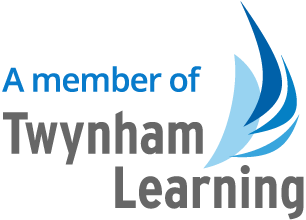English
Learn your language well and command it well, and you will have the first component to life.
- Edward Roscoe Murrow (1908-1965), American news broadcaster and VP of CBS.
Reading at Twynham School
Tutor groups in years 7 to 10 participate in our tutor reading programme. Each tutor reads to their tutor group for two mornings a week, with students tracking alongside.
The canon of books has been purposely constructed so that students not only develop a love of reading, but are also exposed to a range of reading sources that offer a high value of cultural capital; it will allow them to see how literature has developed and evolved from the 19th century to present day. Furthermore, research suggests that it ensures that all students expand their vocabulary and recognise complex use of sentence structure and punctuation as a purposeful device within literary art. Research, and our own practice, demonstrates that allowing students access to as wide a range of reading as possible increases their ability to understand and participate in the whole breadth of the curriculum and with the wider world in general. Our current canon of books is below:
Year 7
Mud, Sweat and Tears by Bear Grylls
Animal Farm by George Orwell
When the Sky Falls by Phil Earle
Year 8
Stolen History by Sathnam Sanghera
Alice’s Adventures in Wonderland by Lewis Carroll
Revolver by Marcus Sedgwick
Year 9
Chinese Cinderella by Adeline Yen Mah
Crossing the Line by Tia Fisher
Terror Kid by Benjamin Zephania
Year 10
"Register, Read and Respond" - students responding to a number of non-fiction texts
Curriculum Information
Key Stage 4 Core Subject Information
Exam board: AQA
Qualification: GCSE in English Language
All students will follow the AQA English Language syllabus. During Years 10 and 11, students are exposed to a variety of literary and non-literary texts to equip them with the essential subject terminology needed to elicit responses. With a clear focus on authorial viewpoint and methods, students practise the skills needed to meet the requirements of the exam. Students will also have opportunities to develop higher-order reading and critical thinking skills that encourage a genuine enquiry into different topics and themes.
As well as reading, writing creatively is an integral part of the curriculum. Students also learn how to engage an audience in their writing and how to use a range of techniques in a sophisticated manner to reveal a clear and distinct voice. In both their reading and writing skills, students are encouraged to develop flair, creating and analysing texts with insight.


